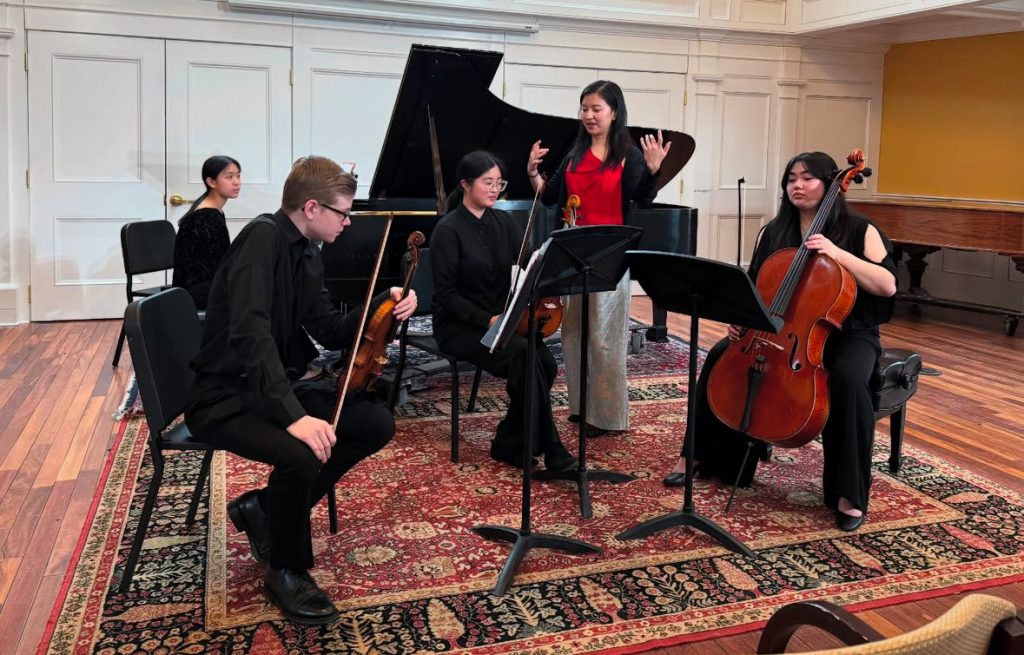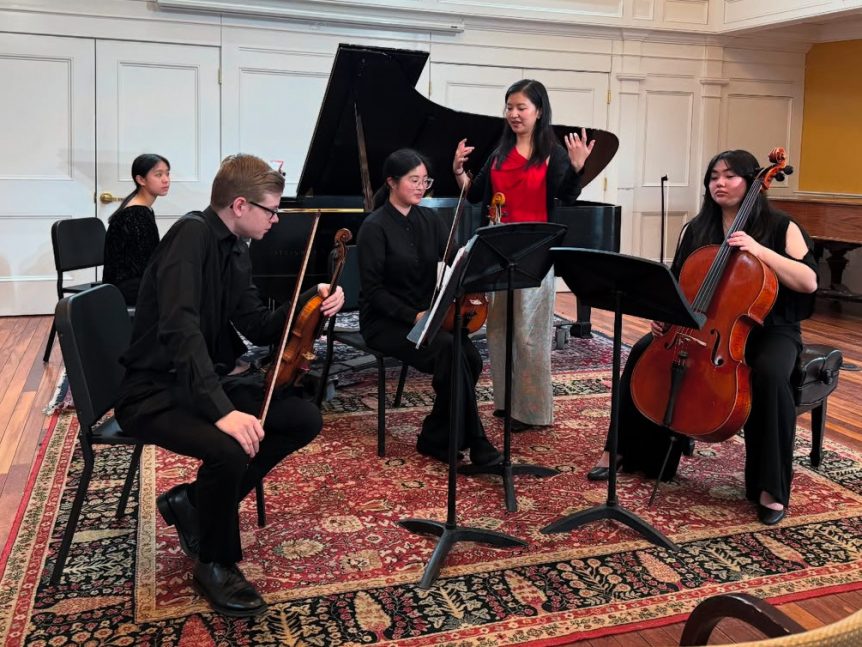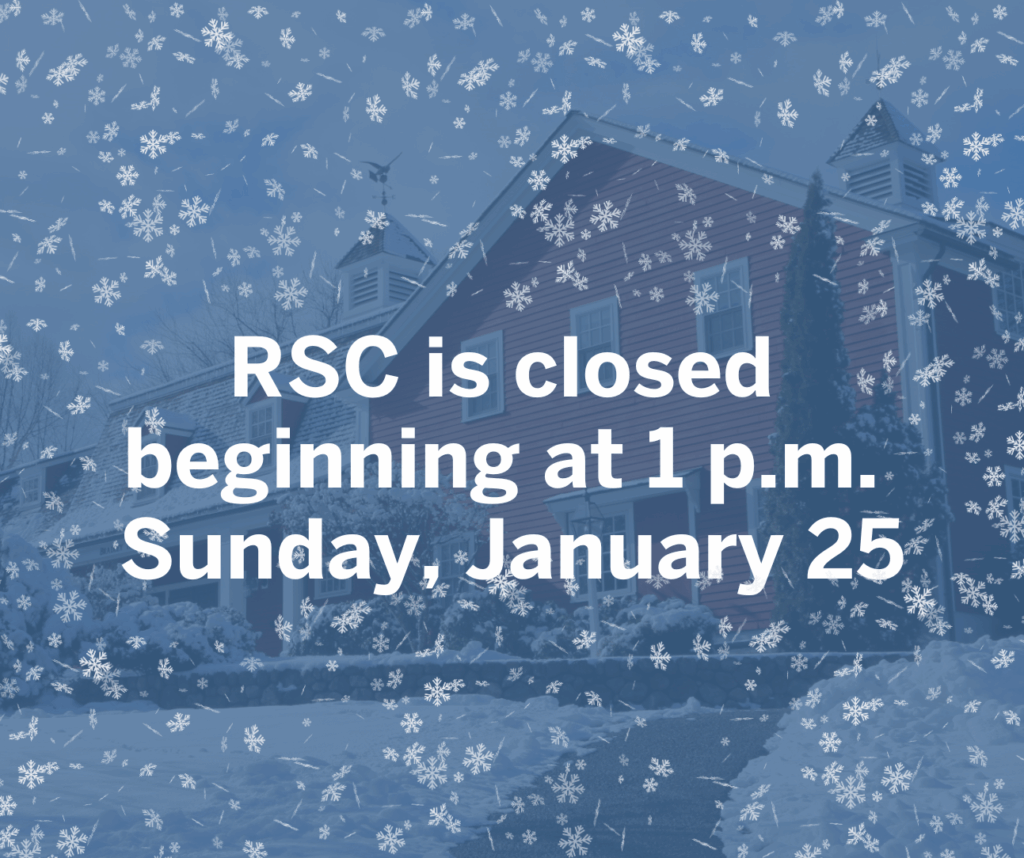Elena Ruehr’s commissioned piece Piano Quartet No. 2 Maple will be performed by students from RSC’s Studio Chamber Music Program for the 2025 Seminar on Contemporary Music for the Young. Director of Studio Chamber Music Kristen Krauss describes how these students were handpicked for this opportunity: “The piano trio of Gavin Armstrong, Sophia Li, and Katherine Chen won the Studio Chamber Music Award last year. We then reached out to Joelle Chang, a violinist and violist who is part of ChamberMusicLab and Studio Chamber Music, to join and create a strong, hardworking piano quartet. This led to the formation of this amazing group!”
Piotr Buczek, an RSC Studio Chamber Music faculty member, has been coaching the quartet. “All four instrumentalists are some of the best musicians you can imagine among high schoolers in the area. Not only have they been playing together for three or four years, but they also play a few other instruments equally well,” Buczek describes. “Katherine, the pianist, is also a talented violinist. Gavin, the violinist, is a very promising composer, and his piece will also be performed at the Seminar. Joelle, the violist, also plays the cello and violin. Sophia is a very gifted cellist.”

For the world premiere of Ruehr’s commissioned piece, Buczek knows this quartet will shine. “Having this kind of high-quality students, you can absolutely trust them to work by themselves. They are mature musicians and amazing chamber music players.”
Like learning any new piece, there are a few challenges. “The piece we are working on is written by a living composer, so we have to follow the composer’s instructions more closely, rather than relying on historically established interpretations, aesthetics, and styles,” Buczek comments. “Other than that, everything is the same. We are working on ensemble, intonation, phrasing, and expression in the same way as we do with any classical piece.”
Cellist Sophia Li reflects on her experience learning Piano Quartet No. 2 Maple. “One of the biggest differences is that for Mozart or Beethoven, there are already many pre-existing recordings and interpretations that allow us as players to draw inspiration from and develop our own ideas,” she explains. “But with a commissioned piece like this, which strays from what we are used to, we need to start from a blank slate.”
Li elaborates on the challenges but also the exciting nature of bringing a piece to life. “It puts a bit of pressure on us because we feel the need to bring out the most from this piece. Since it’s so unexplored, we aren’t sure of the extent we can play to,” she remarks. “However, this is similar to how we approach all the pieces we play. We have the mindset of performing for the sake of connecting to the music and conveying our love for the art to the audience.”
The Seminar brings a refreshing focus on contemporary work, encouraging many of the musicians to step outside of their comfort zone of classical music. Li highlights the value of learning pieces spanning many eras and styles. “Having a balance between the past and present is important because we’re always taking inspiration and seeing how we can improve and further this craft. Works from the greats are important to dissect and understand, but I feel that it is also necessary to see how those works have impacted our present music and what direction we will be heading toward in the future.”
Piotr Buczek feels passionately about fostering the education of contemporary pieces. “Out of respect for our living composers, out of respect for the art of music to be passed on to the next generations, and out of respect for ourselves to be able to open our minds to the new language of expressiveness and art, it is important to learn it, play it, and promote it the same way.”
Through their collaboration and commitment to learning Piano Quartet No. 2 Maple these talented students not only bring a fresh perspective to a new composition but also contribute to the ongoing evolution of the musical landscape. The Seminar serves as a valuable platform for bridging the past and present of classical and contemporary music.
Article written by Suchi Patel


